Home>Garden Essentials>What Are The Benefits Of Eating Watermelon Seeds
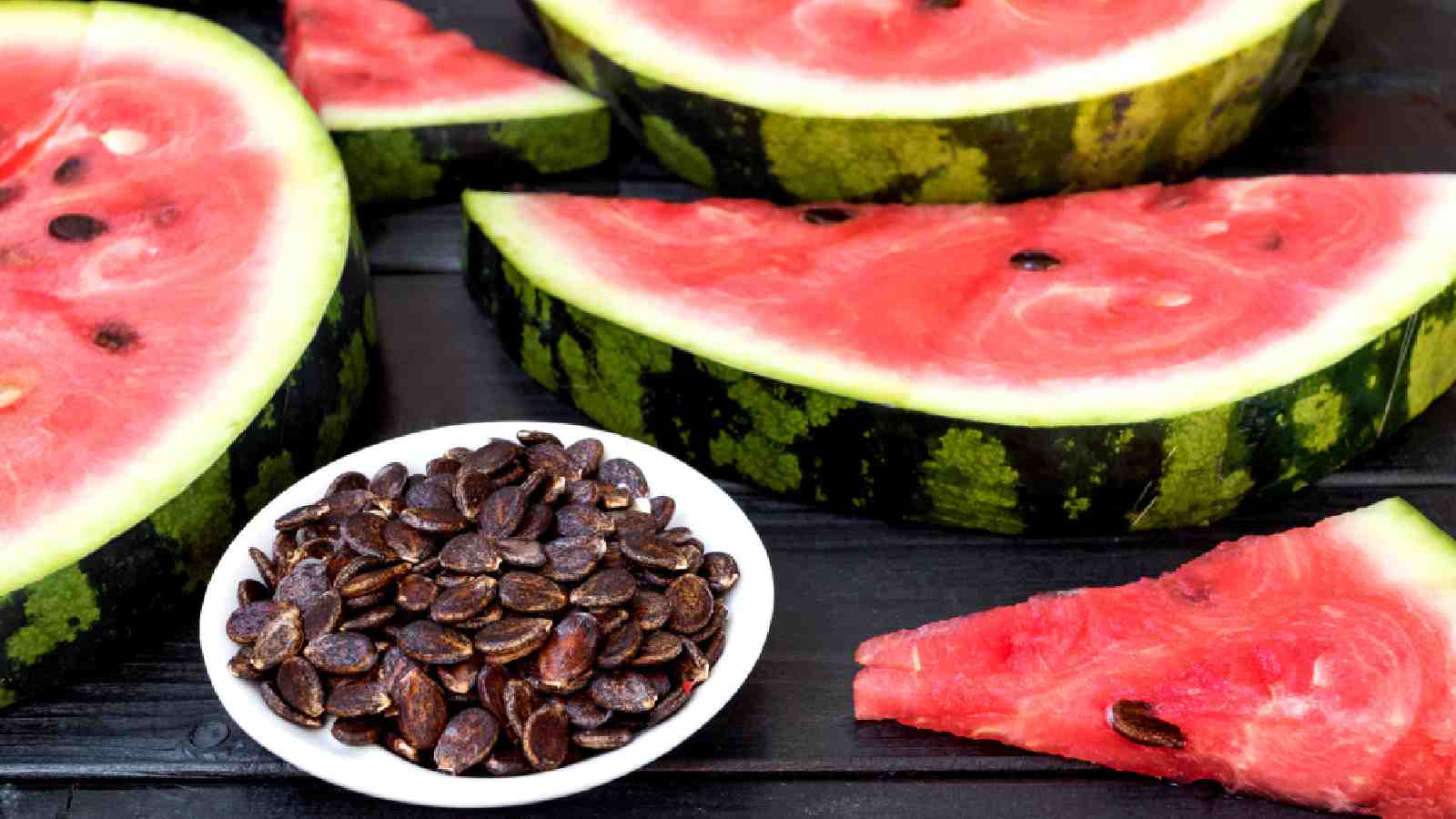

Garden Essentials
What Are The Benefits Of Eating Watermelon Seeds
Modified: August 26, 2024
Discover the numerous benefits of incorporating watermelon seeds into your diet and learn how to grow your own garden full of this nutritious fruit.
(Many of the links in this article redirect to a specific reviewed product. Your purchase of these products through affiliate links helps to generate commission for Storables.com, at no extra cost. Learn more)
Introduction
Watermelon is a beloved fruit, known for its deliciously sweet and hydrating flesh. But did you know that watermelon seeds, often discarded, are actually packed with nutrition and health benefits? Yes, it’s true! These small, unassuming seeds can be a nutritious addition to your diet.
Watermelon seeds are rich in protein, healthy fats, vitamins, minerals, and fiber. They have been consumed and appreciated in various cultures for centuries. In fact, they were even found in ancient Egyptian tombs! Today, watermelon seeds are gaining popularity as a superfood, thanks to their impressive nutrient profile and numerous health benefits.
In this article, we will explore the nutritional content of watermelon seeds and delve into the amazing health benefits they offer. From improving heart health to promoting hair and skin health, watermelon seeds are a power packed snack or addition to your meals.
Key Takeaways:
- Watermelon seeds are a nutritious powerhouse, offering protein, healthy fats, vitamins, and fiber. They support heart health, boost the immune system, aid digestion, and promote healthy hair and skin.
- Incorporating watermelon seeds into your diet can be fun and versatile. Enjoy them roasted as a snack, sprinkled on salads, blended into smoothies, or added to baked goods. Be mindful of portion sizes and potential allergies.
Read more: What Are The Benefits Of Sesame Seeds
Nutritional Content of Watermelon Seeds
Watermelon seeds are a nutritional powerhouse, offering a wide array of essential nutrients. They are a great source of protein, healthy fats, vitamins, minerals, and dietary fiber. Just a small handful of watermelon seeds can provide your body with a nutrient boost.
Protein: Watermelon seeds are an excellent source of plant-based protein. Protein is essential for cell growth and repair, as well as supporting a healthy immune system. In fact, watermelon seeds contain more protein than most other fruits, with approximately 30 grams of protein per 100 grams of seeds.
Healthy Fats: Watermelon seeds are high in healthy fats, including monounsaturated and polyunsaturated fats. These fats are important for maintaining a healthy heart and brain, as well as aiding in the absorption of fat-soluble vitamins. Additionally, they provide a good balance of omega-3 and omega-6 fatty acids, which are crucial for overall health.
Vitamins and Minerals: Watermelon seeds are a rich source of vitamins and minerals, including vitamin B, magnesium, potassium, zinc, and iron. Vitamin B plays a vital role in energy production and brain function. Magnesium is essential for muscle and nerve function, while potassium helps maintain proper fluid balance in the body. Zinc and iron are important for immune function and healthy blood cells.
Dietary Fiber: Watermelon seeds are packed with dietary fiber, which is beneficial for digestion and promoting a feeling of fullness. Fiber helps regulate bowel movements, prevents constipation, and supports a healthy gut. It also aids in weight management and can help lower cholesterol levels.
It’s important to note that the nutritional content of watermelon seeds may vary slightly depending on the variety and processing methods. However, overall, they are a nutrient-dense and wholesome snack that can provide numerous health benefits when incorporated into a balanced diet.
Health Benefits of Watermelon Seeds
Watermelon seeds offer a range of health benefits due to their impressive nutritional profile. Incorporating these seeds into your diet can support various aspects of your well-being. Let’s explore some of the key health benefits of watermelon seeds.
Improves Heart Health
Watermelon seeds are a heart-healthy food. They are rich in magnesium, an essential mineral that plays a crucial role in maintaining a healthy heart. Magnesium helps regulate blood pressure, prevents the formation of blood clots, and supports proper heart rhythm. The healthy fats found in watermelon seeds, including omega-3 and omega-6 fatty acids, also contribute to heart health by reducing inflammation and supporting optimal cardiovascular function.
Boosts Immune System
Watermelon seeds contain zinc, a mineral known for its immune-boosting properties. Zinc plays a vital role in immune function, helping to protect against infections and supporting the body’s natural defense mechanisms. Including watermelon seeds in your diet can help strengthen your immune system and keep you healthy.
Read more: What Is The Benefits Of Avocado Seed
Enhances Digestive Health
The dietary fiber content in watermelon seeds promotes healthy digestion. Fiber adds bulk to the stool, preventing constipation and promoting regular bowel movements. It also acts as a prebiotic, nourishing the beneficial bacteria in the gut. A healthy gut microbiota supports optimal digestion and nutrient absorption, leading to improved overall digestive health.
Promotes Hair and Skin Health
Watermelon seeds are a great source of biotin, which is essential for healthy hair and skin. Biotin helps strengthen hair, promoting growth and preventing hair loss. It also contributes to the maintenance of healthy skin, keeping it hydrated, smooth, and radiant. Incorporating watermelon seeds into your diet can help promote strong, lustrous hair and youthful-looking skin.
Supports Weight Management
Due to their high protein and dietary fiber content, watermelon seeds can be a valuable addition to a weight management diet. Protein helps increase feelings of fullness and reduces appetite, making it easier to maintain a healthy weight. The fiber in watermelon seeds also aids in digestion and prevents overeating. By including watermelon seeds in your meals or using them as a satisfying snack, you can support your weight loss or weight maintenance goals.
Incorporating watermelon seeds into your diet can provide these incredible health benefits. Whether you eat them as a snack, sprinkle them on salads or yogurt, or grind them into a powder for use in recipes, watermelon seeds are a versatile and nutritious addition to your daily routine.
Improves Heart Health
Heart disease is a leading cause of death worldwide, and taking steps to maintain a healthy heart is essential. One way to support heart health is by incorporating watermelon seeds into your diet. These seeds offer specific nutrients and compounds that can positively impact cardiovascular function and reduce the risk of heart disease.
Read more: What Are The Benefits Of Fennel Seed
Rich in Magnesium
Watermelon seeds are an excellent source of magnesium, a mineral that plays a crucial role in maintaining a healthy heart. Magnesium helps regulate blood pressure by relaxing and dilating blood vessels, reducing the strain on the heart. By promoting normal blood pressure, magnesium can help prevent hypertension, a condition that increases the risk of heart disease, stroke, and other cardiovascular problems.
Supports Heart Rhythm
Magnesium, found abundantly in watermelon seeds, also plays a vital role in maintaining proper heart rhythm. It helps regulate the electrical signals that control the contraction and relaxation of the heart muscle. By supporting a steady and coordinated heartbeat, magnesium can help prevent irregularities such as arrhythmias and palpitations.
Reduces Inflammation
Chronic inflammation is a contributing factor to the development of heart disease. Watermelon seeds contain healthy fats, including omega-3 and omega-6 fatty acids, which have anti-inflammatory properties. These fatty acids help reduce inflammation in the body, including inflammation of the blood vessels. By lowering inflammation, watermelon seeds can help protect against the development of atherosclerosis, a condition characterized by the buildup of plaque in the arteries.
Antioxidant Protection
Watermelon seeds are rich in antioxidants, such as vitamin C and vitamin E. These antioxidants help protect the heart and blood vessels from oxidative stress caused by harmful free radicals. Oxidative stress can lead to damage to the arteries, inflammation, and the development of cardiovascular diseases. Including watermelon seeds in your diet can provide a good dose of antioxidants to support heart health.
Read more: How To Save Watermelon Seeds
How to Incorporate Watermelon Seeds into Your Diet
There are various ways to enjoy the heart-healthy benefits of watermelon seeds. Here are a few ideas to incorporate them into your diet:
- Sprinkle roasted watermelon seeds on top of salads for a crunchy and nutritious addition.
- Add ground watermelon seeds to smoothies or protein shakes for an extra boost of protein and healthy fats.
- Use watermelon seed butter as a spread on whole grain toast or crackers.
- Incorporate watermelon seeds into baked goods like muffins or granola bars.
Keep in mind that while watermelon seeds offer numerous health benefits, it’s important to enjoy them in moderation. They are calorie-dense, so be mindful of portion sizes if you are watching your calorie intake.
By including watermelon seeds in your diet, you can take proactive steps towards improving your heart health. Enjoy the delicious taste and nutritional benefits of these little seeds and support a strong and healthy heart.
Boosts Immune System
A strong immune system is essential for overall health and well-being. It helps protect the body against infections, diseases, and foreign invaders. Watermelon seeds can play a role in boosting your immune system, thanks to their nutrient-rich composition and immune-supportive properties.
Rich in Zinc
Watermelon seeds are an excellent source of zinc, a mineral that is vital for a healthy immune system. Zinc plays a critical role in the development and function of immune cells, including white blood cells. These cells are responsible for identifying and eliminating pathogens, such as bacteria and viruses, from the body. Consuming watermelon seeds can help ensure you’re getting enough zinc to support optimal immune function.
Supports Immune Cell Function
In addition to zinc, watermelon seeds contain other nutrients, including vitamins and antioxidants, that can help support immune cell function. Vitamin C, found in watermelon seeds, is known for its immune-boosting properties. It helps stimulate the production of white blood cells and enhances their ability to combat infections. The antioxidants present in watermelon seeds, such as vitamin E, also play a role in supporting a robust immune system by protecting immune cells from damage caused by free radicals.
Read more: What Was The Benefits Of Crop Rotation
Antimicrobial Properties
Watermelon seeds have been found to possess antimicrobial properties, meaning they can help inhibit the growth of harmful bacteria and fungi. This can be particularly beneficial in supporting the immune system’s ability to defend against infections. By consuming watermelon seeds regularly, you may enhance your body’s natural defense mechanisms against various pathogens.
Read more: How To Save Watermelon Seeds
How to Incorporate Watermelon Seeds into Your Diet
Adding watermelon seeds to your daily diet is a simple and tasty way to boost your immune system. Here are a few ideas to help you incorporate them into your meals and snacks:
- Enjoy a handful of roasted watermelon seeds as a healthy and crunchy snack.
- Sprinkle ground watermelon seeds on top of salads, yogurt, or smoothie bowls for added texture and nutrition.
- Blend watermelon seeds into homemade energy bars or granola mixes for a nutrient-packed boost.
- Use watermelon seed butter as a spread on toast or crackers for a delicious and immune-supportive snack.
It’s important to note that while watermelon seeds can contribute to a healthy immune system, they should be enjoyed as part of a balanced diet. Incorporate them along with other immune-boosting foods, such as fruits, vegetables, whole grains, and lean proteins, to optimize your immune function.
By including watermelon seeds in your diet, you can provide your body with the nutrients it needs to support a strong and resilient immune system. Let these tiny seeds work their magic and help keep you healthy and protected.
Enhances Digestive Health
Maintaining a healthy digestive system is vital for overall well-being. Watermelon seeds can play a role in enhancing digestive health, thanks to their fiber content and digestive-supportive properties. Let’s explore how these seeds can contribute to a healthy digestive system.
Rich in Dietary Fiber
Watermelon seeds are a great source of dietary fiber, which is essential for proper digestion. Fiber adds bulk to the stool and helps prevent constipation by promoting regular bowel movements. It also aids in the absorption of water, keeping the stool soft and easier to pass. Eating watermelon seeds can be an effective way to increase your fiber intake and support a healthy digestive system.
Read more: How Many Seeds In A Watermelon
Supports Gut Health
The fiber in watermelon seeds acts as a prebiotic, which means it nourishes the beneficial bacteria in the gut. These bacteria, known as probiotics, play a crucial role in maintaining a healthy gut microbiota. A balanced and diverse gut microbiota is key for proper digestion, nutrient absorption, and immune function. By consuming watermelon seeds, you can promote a healthy balance of gut bacteria and support optimal digestive health.
Aids in Weight Management
Watermelon seeds can be a helpful addition to a weight management diet. The fiber and protein content in these seeds can help promote feelings of fullness and reduce overeating. Fiber slows down the digestion process, keeping you satisfied for longer periods of time. Additionally, protein helps regulate appetite and supports muscle growth, which is essential for maintaining a healthy metabolism. By including watermelon seeds in your diet, you can support your weight management goals while keeping your digestive system healthy.
Improves Nutrient Absorption
A healthy digestive system is crucial for optimal nutrient absorption. The fiber in watermelon seeds helps slow down the absorption of sugars and carbohydrates, preventing blood sugar spikes and improving overall nutrient absorption. By improving nutrient absorption, watermelon seeds can ensure that your body is receiving the maximum nutrients from the food you consume.
Read more: How To Save Watermelon Seeds
How to Incorporate Watermelon Seeds into Your Diet
Adding watermelon seeds to your diet is a simple way to support digestive health. Here are a few ideas to incorporate them into your meals and snacks:
- Enjoy a handful of roasted watermelon seeds as a healthy and fiber-rich snack.
- Add ground watermelon seeds to smoothies or sprinkle them on top of yogurt or overnight oats for extra fiber and crunch.
- Incorporate watermelon seeds into homemade granola bars or energy balls for a nutrient-packed and gut-friendly snack.
- Sprinkle watermelon seeds on top of salads or incorporate them into your favorite baked goods for a tasty and digestive-supportive twist.
Remember to stay hydrated and listen to your body’s needs while incorporating watermelon seeds into your diet. Remember, moderation is key, and it’s essential to have a balanced diet that includes a variety of other fruits, vegetables, and whole grains to support overall digestive health.
By incorporating watermelon seeds into your eating routine, you can promote a healthy digestive system, enjoy the benefits of fiber, and support optimal nutrient absorption. Indulge in this nutritious food and give your digestive health the attention it deserves.
Read more: How To Grow A Watermelon From A Seed
Promotes Hair and Skin Health
Watermelon seeds are not only nutritious but can also contribute to vibrant and healthy hair and skin. They contain various nutrients and compounds that support the well-being and appearance of these external features. Let’s explore how incorporating watermelon seeds into your diet can promote hair and skin health.
Rich in Biotin
Watermelon seeds are a good source of biotin, also known as vitamin B7 or vitamin H. Biotin is essential for maintaining healthy and strong hair and nails. It plays a crucial role in promoting hair growth and preventing hair loss. Biotin helps strengthen the hair strands, reducing breakage and improving overall hair health. By including watermelon seeds in your diet, you can provide your body with a natural source of biotin to support lustrous and healthy hair.
Nourishes the Scalp
The healthy fats, such as omega-3 and omega-6 fatty acids, present in watermelon seeds can benefit the scalp as well. These fatty acids help moisturize and nourish the scalp, keeping it hydrated and preventing dryness or flakiness. A healthy scalp provides the foundation for healthy hair growth. By consuming watermelon seeds, you can nourish your scalp from within and promote optimal hair growth and health.
Provides Antioxidant Protection
Watermelon seeds are rich in antioxidants, including vitamin C and vitamin E. These antioxidants help protect the skin from free radical damage, which can lead to premature aging and skin issues. Free radicals are unstable molecules that can damage cells and accelerate the aging process. The antioxidants in watermelon seeds neutralize these free radicals, helping to keep the skin healthy, youthful, and vibrant.
Read more: What Birds Eat Seeds
Supports Collagen Production
Collagen is a protein that plays a vital role in maintaining the elasticity and firmness of the skin. Watermelon seeds contain essential amino acids that support collagen synthesis in the body. Collagen helps keep the skin supple, diminishes the appearance of wrinkles, and promotes a youthful complexion. By incorporating watermelon seeds into your diet, you can support the production of collagen and maintain healthy, beautiful skin.
Read more: How To Save Watermelon Seeds
How to Incorporate Watermelon Seeds into Your Diet
Including watermelon seeds in your diet is a simple and enjoyable way to promote hair and skin health. Here are a few ideas to incorporate them into your meals and snacks:
- Snack on roasted watermelon seeds for a nutritious and crunchy treat.
- Add ground watermelon seeds to your favorite smoothies or sprinkle them on top of yogurt and cereal.
- Incorporate watermelon seeds into homemade granola bars or protein balls for an additional nutrient boost.
- Use watermelon seed butter as a spread on toast, fruit, or rice cakes for a delicious and skin-nourishing snack.
Remember, a holistic approach to hair and skin health involves a combination of proper nutrition, hydration, skincare, and overall self-care. By including watermelon seeds in your diet, you can provide your body with the necessary nutrients to support vibrant hair and glowing skin, complementing your external beauty with internal nourishment.
Supports Weight Management
Maintaining a healthy weight is important for overall well-being and can reduce the risk of various health conditions. Watermelon seeds can be a valuable addition to a weight management plan, thanks to their nutritional composition and unique properties that promote satiety and support healthy metabolism.
High in Protein
Watermelon seeds are packed with protein, making them an excellent option for those looking to manage their weight. Protein is known for its ability to promote feelings of fullness and reduce appetite. Additionally, protein requires more energy to digest compared to fats and carbohydrates, which can slightly increase calorie expenditure and support a healthy metabolism. Including watermelon seeds in your meals or snacks can help you feel satisfied and prevent overeating.
Read more: What Bird Eats Thistle Seed
Rich in Fiber
Fiber is another important nutrient in watermelon seeds that can aid in weight management. High-fiber foods tend to be more filling and contribute to a sense of fullness, which can help control calorie intake. The fiber in watermelon seeds slows down the digestion process, promoting gradual release of glucose into the bloodstream and helping to stabilize blood sugar levels. This can prevent energy crashes and reduce cravings for sugary and high-calorie foods.
Healthy Fats for Satiety
Watermelon seeds contain healthy fats, including monounsaturated and polyunsaturated fats. These fats are essential for a well-balanced diet and can contribute to feelings of satiety. Healthy fats take longer to digest than carbohydrates, helping to keep you feeling fuller for longer periods of time. By including watermelon seeds in your meals or snacks, you can increase your healthy fat intake, which can lead to improved appetite control and weight management.
Read more: How To Save Watermelon Seeds
How to Incorporate Watermelon Seeds into Your Diet
There are various ways to enjoy the weight management benefits of watermelon seeds. Here are a few ideas to help you incorporate them into your meals and snacks:
- Snack on a handful of roasted watermelon seeds for a satisfying and nutritious treat.
- Sprinkle ground watermelon seeds on top of salads, yogurt, or oatmeal for added protein and fiber.
- Add watermelon seeds to homemade energy bars or granola mixes for a nutrient-dense snack on the go.
- Use watermelon seed butter as a spread on whole grain bread or fruits for a delicious and satiating snack.
Remember to practice moderation and be mindful of portion sizes when incorporating watermelon seeds into your diet, as they are calorie-dense. Additionally, maintaining a healthy weight involves a well-rounded approach, including regular physical activity, sufficient sleep, and a balanced diet with a variety of fruits, vegetables, whole grains, and lean proteins.
By including watermelon seeds as part of your weight management plan, you can take advantage of their protein and fiber content to support satiety, control cravings, and maintain a healthy body weight. Enjoy the nutritional benefits of these versatile seeds while working towards your health and wellness goals.
How to Incorporate Watermelon Seeds into Your Diet
Watermelon seeds are not only nutritious but also versatile, making them an easy addition to your diet. These little seeds can be incorporated into various meals and snacks to add a nutritional boost and a unique crunch. Here are some creative ways to enjoy the benefits of watermelon seeds:
Read more: What Animals Eat Sunflower Seeds
Roasted Snack
One of the simplest ways to enjoy watermelon seeds is by roasting them. After removing the seeds from a watermelon, rinse them thoroughly and pat them dry. Toss the seeds with a little bit of olive oil and your preferred seasonings, such as salt, pepper, or spices like cinnamon or chili powder. Spread the seeds on a baking sheet and roast them in the oven at around 325°F (165°C) for about 15-20 minutes, or until they turn golden brown. Allow them to cool before snacking on them. Roasted watermelon seeds make for a satisfying and nutrient-rich snack that you can enjoy on-the-go or at home.
Sprinkle on Salads
Watermelon seeds can add a delightful crunch and nutritional value to your salads. Simply sprinkle a handful of roasted or raw watermelon seeds on top of your favorite salad. They pair well with leafy greens, fruits, vegetables, and even protein sources like grilled chicken or tofu. The seeds can bring a unique texture and flavor to your salads while providing protein, healthy fats, and fiber.
Blend into Smoothies
If you enjoy smoothies, why not add a boost of nutrition with watermelon seeds? Before blending your favorite smoothie ingredients, grind a handful of watermelon seeds into a powder using a blender or a coffee grinder. Then, simply add the powdered seeds to your smoothie mixture and blend until smooth. This not only adds an extra nutrient kick but also provides a subtle nutty flavor to your smoothies.
Top off Yogurt or Oatmeal
For a wholesome and nutritious breakfast, sprinkle watermelon seeds on top of your yogurt or oatmeal. They can provide a satisfying crunch and add extra protein and fiber to your morning meal. You can either use roasted or raw seeds depending on your preference. Combine them with fruits, nuts, and a drizzle of honey for a delicious and energizing start to your day.
Read more: What Birds Eat Nyjer Seed
Incorporate into Baked Goods
Get creative in the kitchen and use watermelon seeds as a nutritious addition to your baked goods. You can blend roasted watermelon seeds into a fine powder and substitute a portion of the flour in recipes like muffins, bread, cookies, or energy bars. This not only adds a unique flavor but also boosts the protein and fiber content of your baked treats.
Remember to practice moderation when incorporating watermelon seeds into your diet, as they are still calorie-dense. Additionally, consider your personal preferences and any allergies or sensitivities you may have when selecting the best ways to enjoy watermelon seeds.
With their versatility and nutritional benefits, watermelon seeds can be a fun and healthy addition to your diet. Experiment with different methods of incorporating them into your meals and snacks to discover your favorite way to enjoy these tiny powerhouses of nutrition.
Precautions and Potential Risks
While watermelon seeds offer numerous health benefits, it is important to be aware of potential precautions and risks associated with their consumption. Here are a few things to keep in mind:
Allergy and Seed Sensitivity
Some individuals may be allergic or sensitive to watermelon seeds. If you have a known allergy to watermelon or any other seeds, it is advised to avoid consuming watermelon seeds. Allergic reactions can range from mild symptoms like itching and swelling to more severe reactions like difficulty breathing. If you experience any adverse effects after consuming watermelon seeds, seek medical attention immediately.
Portion Control
While watermelon seeds are nutrient-dense and can be a healthy addition to your diet, they are also calorie-dense. It is important to practice portion control and be mindful of your overall calorie intake. Consuming excessive amounts of watermelon seeds may contribute to weight gain or interfere with your weight management goals.
Read more: What Seeds Can Budgies Eat
Seed Digestibility
Watermelon seeds have a protective outer shell, which can make them difficult to digest for some individuals. If you have a history of gastrointestinal issues or trouble digesting seeds, it may be advisable to consume watermelon seeds in moderation or opt for seedless varieties of watermelon to avoid any discomfort or digestive issues. Additionally, chewing the seeds thoroughly or grinding them into a powder can help improve their digestibility.
Sodium Content in Roasted Seeds
If you choose to enjoy roasted watermelon seeds, be mindful of the sodium content, especially if you are on a low-sodium diet. Roasted seeds are often seasoned with salt or other seasonings that may contribute to high sodium intake. It is important to read the labels or make your own roasted seeds with minimal salt to control your sodium intake.
Quality and Storage
To ensure the safety and freshness of watermelon seeds, it is important to choose high-quality seeds from a reliable source. Store the seeds in an airtight container in a cool, dry place to maintain their flavor and nutritional value. Be cautious of expired or rancid seeds, as they may have an off taste and be less nutritious.
As always, consult with a healthcare professional or a registered dietitian before making any significant changes to your diet. They can provide personalized advice based on your specific health needs and dietary preferences.
By being aware of these precautions and potential risks, you can enjoy watermelon seeds safely and reap their many health benefits. Practice moderation, listen to your body, and make informed choices to incorporate watermelon seeds into a balanced and healthy diet.
Conclusion
Watermelon seeds, often overlooked and discarded, are a nutrient powerhouse that can bring a range of health benefits to your diet. These tiny seeds are rich in protein, healthy fats, vitamins, minerals, and fiber, making them a valuable addition to a well-rounded and nutritious eating plan. From improving heart health to supporting weight management, enhancing digestive health, promoting hair and skin health, and boosting the immune system, watermelon seeds offer a plethora of advantages for your overall well-being.
Incorporating watermelon seeds into your diet can be done in several creative ways. Enjoy them as a crunchy roasted snack, sprinkle them on salads, blend them into smoothies, top off your yogurt or oatmeal, or even incorporate them into baked goods. The versatility of watermelon seeds allows you to experiment with various flavors and textures while reaping their nutritional benefits.
However, it is essential to exercise caution and be aware of potential allergies and sensitivities to watermelon seeds. Additionally, practicing portion control and being mindful of sodium content in roasted seeds is crucial for maintaining a balanced diet. Remember to choose high-quality seeds, store them properly, and seek guidance from a healthcare professional or registered dietitian if you have any concerns or specific dietary needs.
By embracing the benefits of watermelon seeds, you can nourish your body with the protein, healthy fats, vitamins, and minerals it needs to thrive. Whether you’re looking to support heart health, boost your immune system, improve digestion, enhance the appearance of your hair and skin, or manage your weight, watermelon seeds offer a natural and delicious way to do so.
So, the next time you enjoy a refreshing slice of watermelon, don’t forget about the seeds. Embrace their potential, get creative in the kitchen, and elevate your health to new heights with these tiny, yet mighty, nutritional gems. Incorporate watermelon seeds into your diet and experience the remarkable benefits they have to offer.
Frequently Asked Questions about What Are The Benefits Of Eating Watermelon Seeds
Was this page helpful?
At Storables.com, we guarantee accurate and reliable information. Our content, validated by Expert Board Contributors, is crafted following stringent Editorial Policies. We're committed to providing you with well-researched, expert-backed insights for all your informational needs.
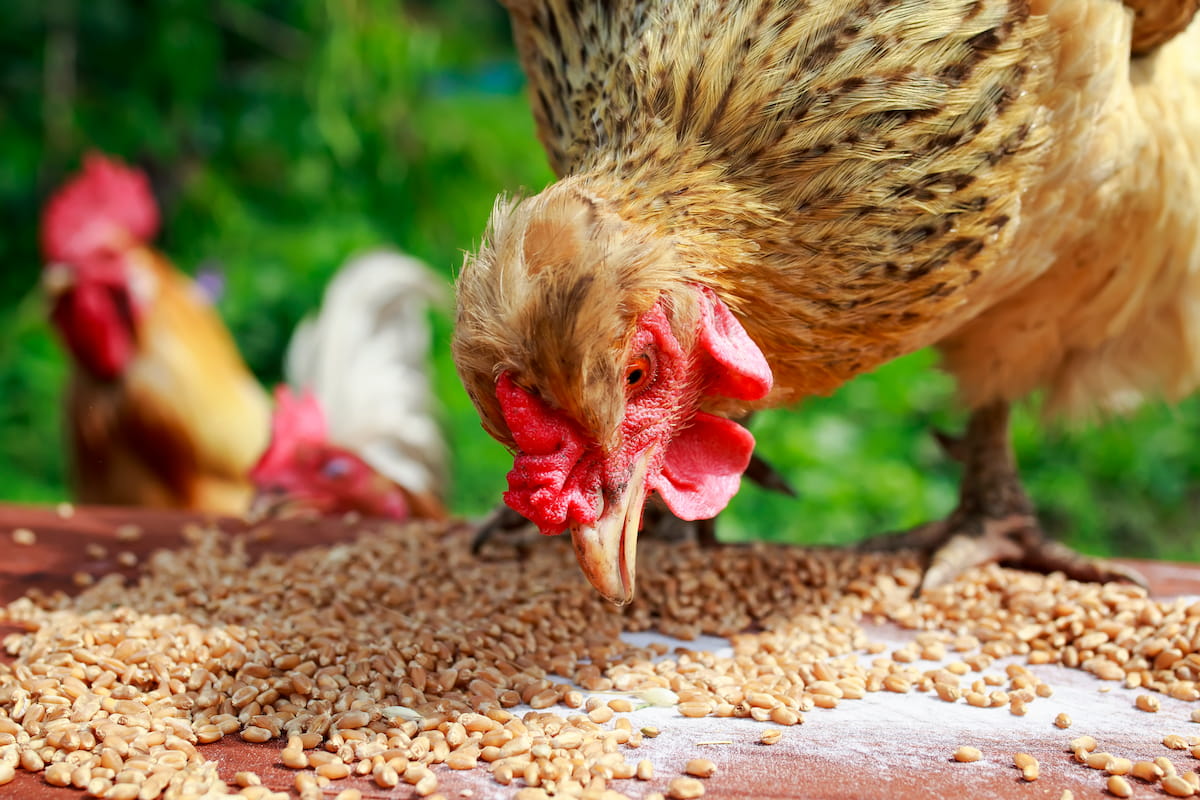
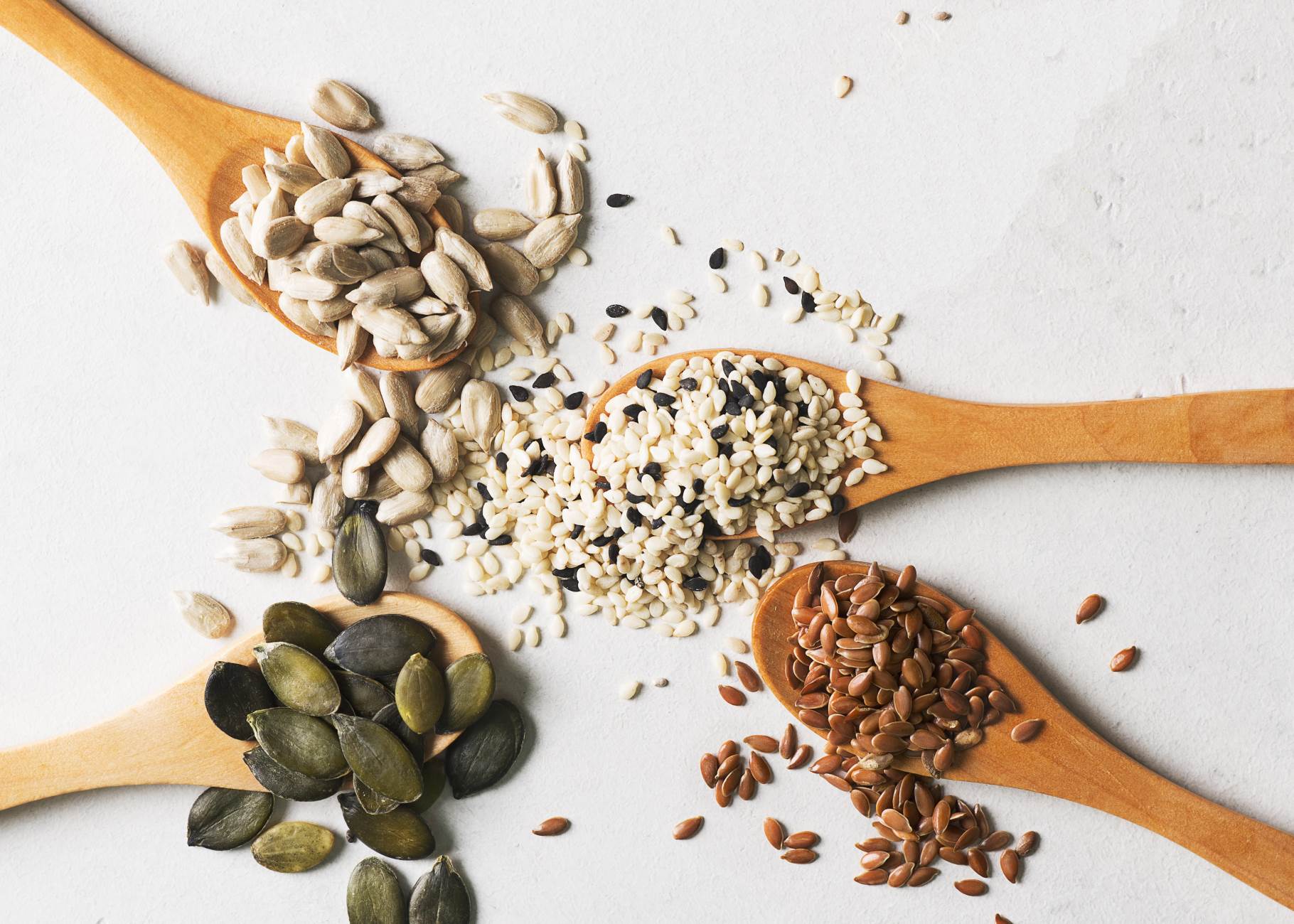
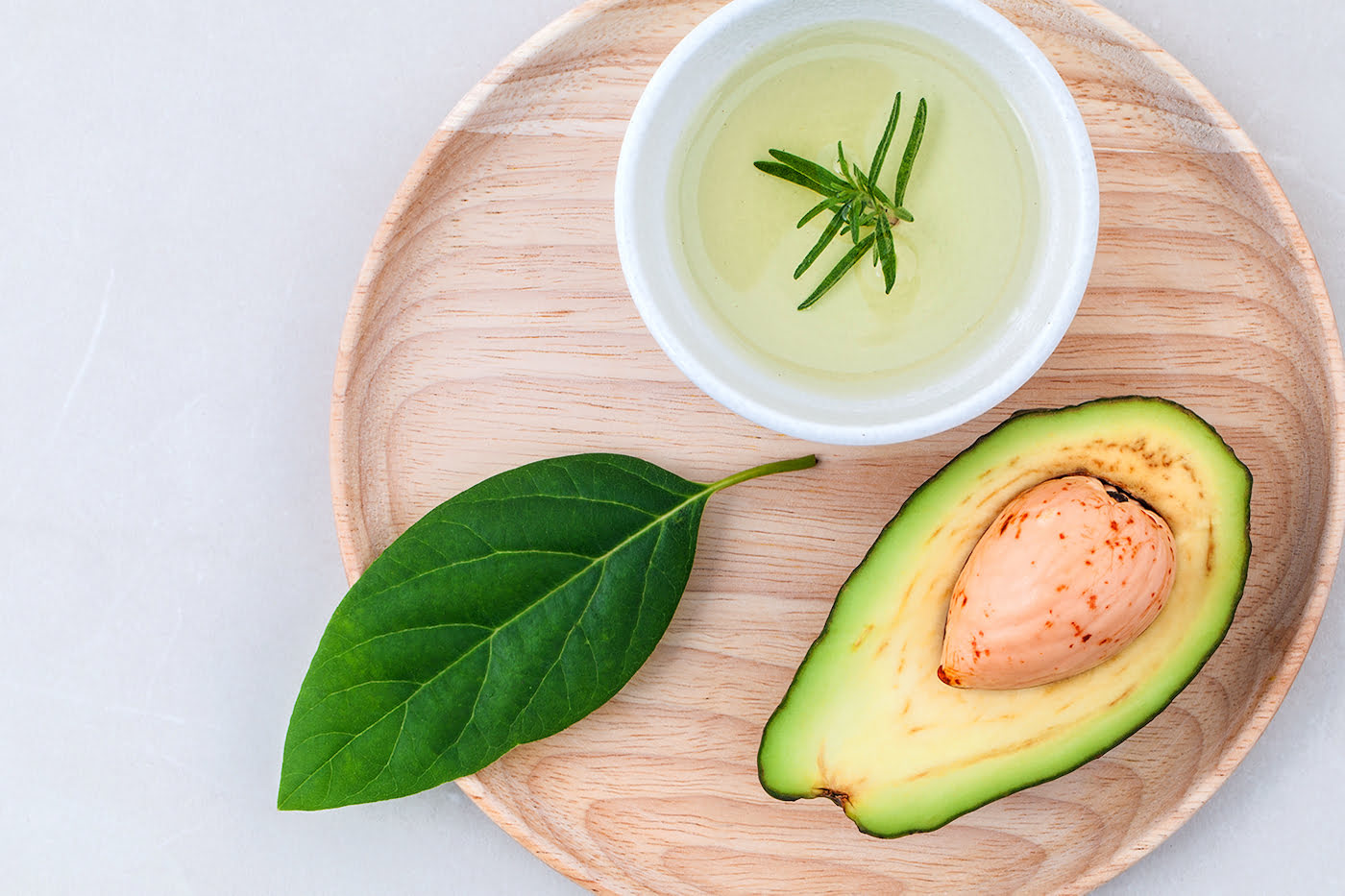
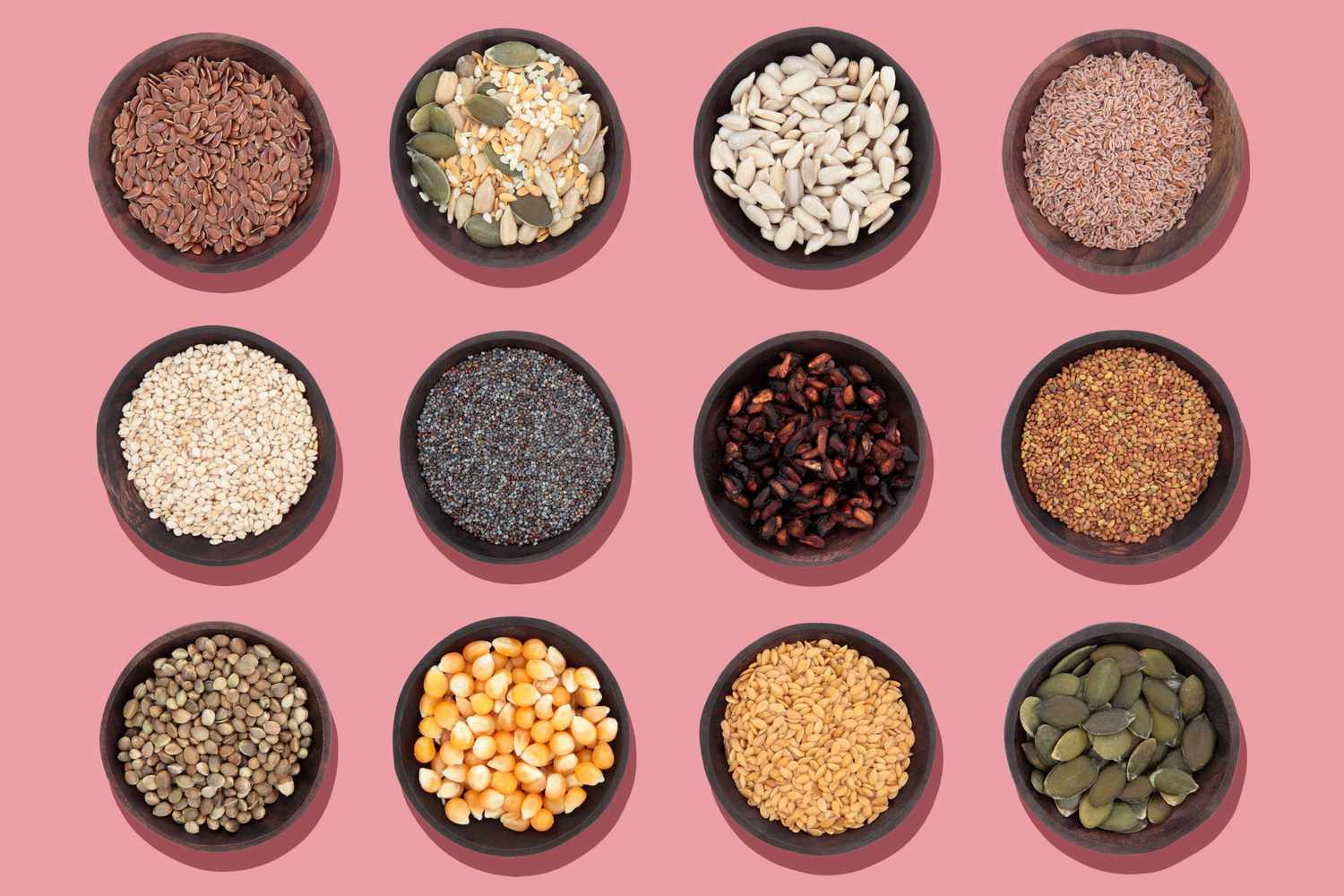

0 thoughts on “What Are The Benefits Of Eating Watermelon Seeds”